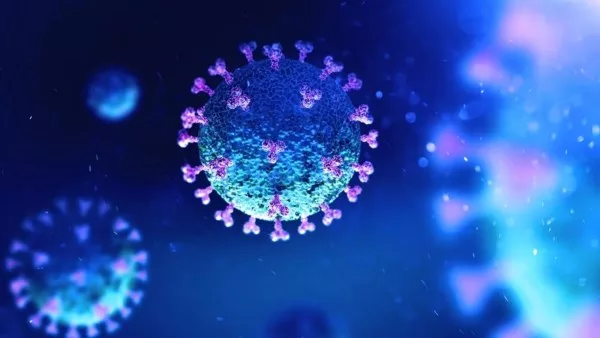Pune: Study Finds JN.1 Variant of COVID-19 Mirrors Previous Variants in Clinical Features: Research Highlights

Pune : Study Finds JN.1 Variant of COVID-19 Mirrors Previous Variants in Clinical Features: Research Highlights
A study by experts from B J Medical College (BJMC) and ICMR National Institute of Virology (NIV) unveils that the JN.1 variant, predominant in India, shares clinical characteristics akin to earlier Covid-19 variants in Maharashtra without heightened severity.
Published in the medical journal ‘Cureus of Springer Nature Group’ on March 22, the study titled ‘Appearance and prevalence of JN.1 SARS-CoV-2 variant in India and its clinical profile in the state of Maharashtra’ marks a significant milestone in understanding the pandemic’s progression.
Led by Dr. Rajesh P Karyakarte, head of the microbiology department at B J Medical College, alongside Dr. Varsha Potdar and a team of esteemed researchers, the study delves into the emergence and clinical implications of the JN.1 variant, shedding light on its prevalence and impact.
Initially surfacing as the BA.2.86 variant in August 2023 amid the global dominance of XBB sub-lineages, the JN.1 variant, characterized by the L455S mutation, gained prominence by late 2023, spreading across 71 countries. Concerns arose over its transmission dynamics and clinical ramifications, prompting rigorous investigation.
Analyzing 3,150 curated Indian SARS-CoV-2 whole genome sequences collected between August 1, 2023, and January 15, 2024, the study scrutinized the lineage and phylogenetic evolution of the virus using advanced techniques. Interviews supplemented demographic details and clinical data on JN.1 and its sub-lineages, providing valuable insights into its trajectory.
In Maharashtra, the JN.1 variant surfaced on November 23, 2023, marking a pivotal moment in the pandemic’s local landscape. Of the 279 JN.1 cases scrutinized, 95.34% exhibited symptomatic disease, primarily manifesting as mild symptoms such as cold, fever, cough, and headache. Notably, 13.26% necessitated institutional quarantine or hospitalization, with the majority managed conservatively or requiring supplemental oxygen therapy.
Remarkably, 94.26% of JN.1 cases had received at least one dose of the Covid-19 vaccine, underscoring the importance of vaccination in mitigating disease severity. Despite the variant’s prevalence, the overall recovery rate stood at an impressive 98.57%, with minimal fatalities recorded.
The study’s comprehensive analysis identified JN.1 as the most prevalent lineage, underscoring its dominance in the viral landscape. Dr. Karyakarte emphasized the importance of swift detection strategies to curb potential surges and mitigate risks associated with viral evolution.
As the virus continues to evolve, understanding the clinical nuances of emerging variants is paramount for effective public health response. Dr. Karyakarte stressed the significance of ongoing research in predicting and averting future outbreaks, ensuring preparedness and resilience in combating the pandemic’s ever-changing dynamics.








